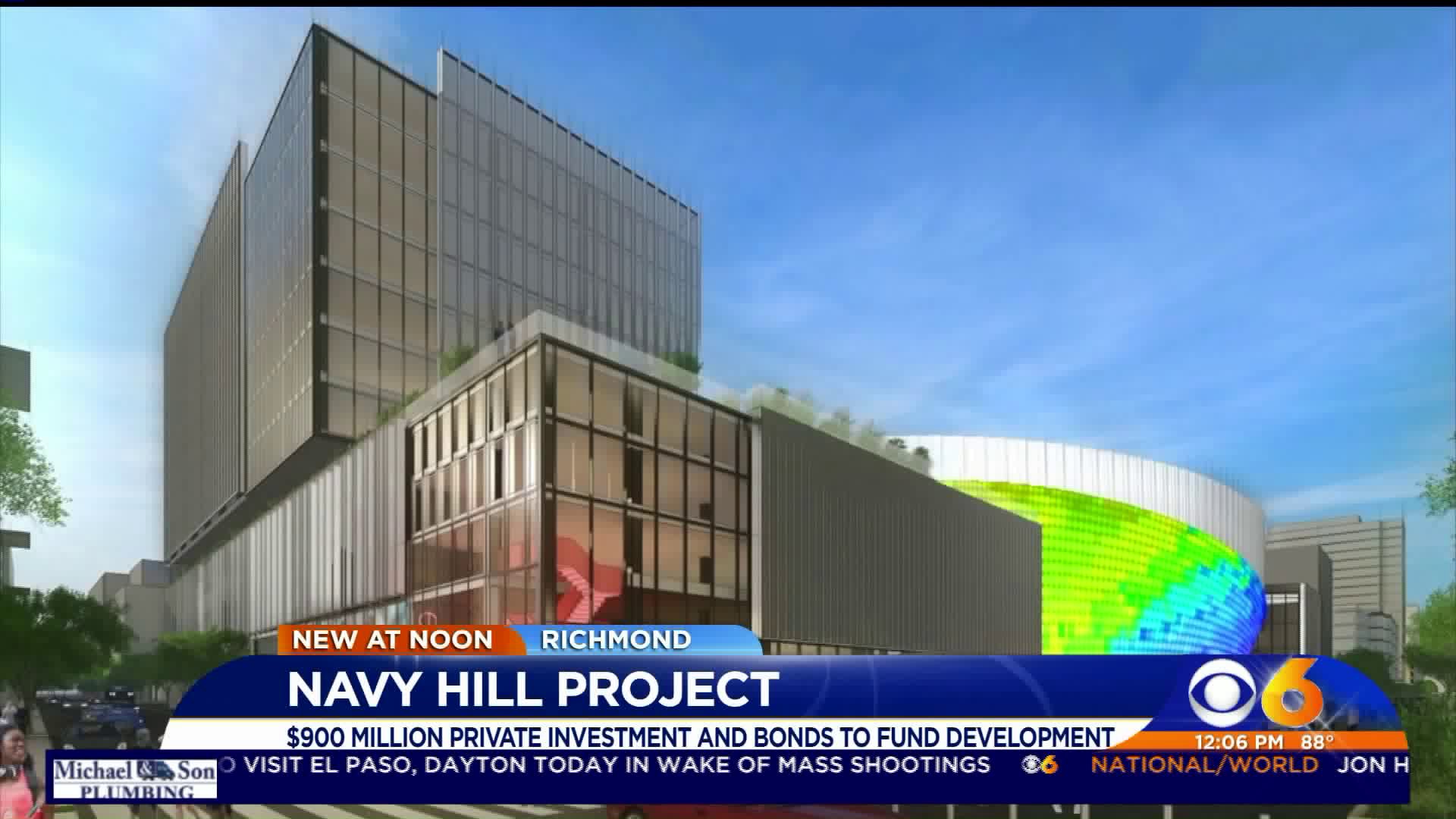RICHMOND, Va. -- Lots of jobs, housing, and a revitalized area -- that’s what financial advisers from Davenport and Company predict The Navy Hill project will bring.
The city’s financial advisors explained how the finances for the deal were put together in a meeting Wednesday morning.
Under Mayor Levar Stoney's Navy Hill project proposal, a new hotel, a GRTC bus transit center, affordable apartments, and a new arena would be built along a 10 block area between 5th to 10th streets and Marshall to Leigh Streets.
Over the past 17 months, the city administration has worked with The NH District Corporation and developer Capital City Partners to negotiate the plans. Stoney has promised taxes would not be raised to fund the project.

David Rose, with Davenport and Company, says two sources will fund the project: $900 million of private investment that will occur simultaneously with the building of the arena project, and publicly issued non-recourse revenue bonds. Rose explained that the non-recourse revenue bonds would be repaid with the money coming in from the new development like the new Convention Center Hotel, Blues Armory renovation, residential, and commercial office space which will produce significant net new tax revenues.
Those net new tax revenues include real estate tax. meals tax, sales tax, and lodging tax. Rose said the city would not be required to make up the difference for any shortfalls.
"Having done this for almost 40 years, I don’t see a downside to this project," said Rose. "That's a big statement. But we started out nine or ten months ago, like we basically have tried to do what you do, is be skeptical, ask a lot of questions. And as Jimmy said not just ask the questions, put a lot of demands and say that’s why there are 950 pages of documents -- how is the city going to be safeguarded?"
Rose said over a 30 year period, they expect the project will bring in more than a billion dollars for the city -- and about 985 million after factoring in the costs to the city.
Mayor Stoney previously stated the $1.5 billion, five-year project would bring more than 20,000 jobs -- including construction jobs -- to the city.
Richmond City Council will vote on the proposal after a public hearing is scheduled.





